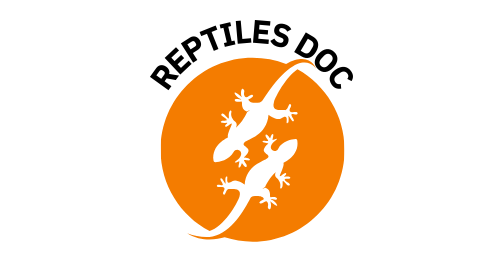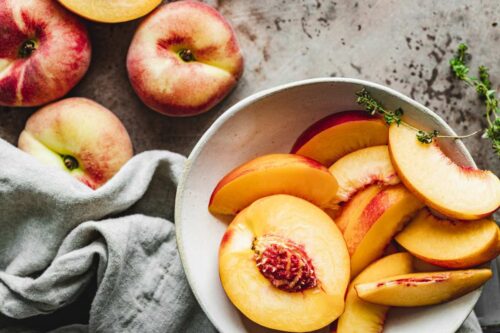Bearded dragons (scientific name Pogona vitticeps) are popular pet reptiles known for their friendly demeanor, distinct appearance, and ease of care. But can bearded dragons eat peaches?
Bearded dragons can eat peaches occasionally as a treat. Peaches offer vitamins A and C, which are beneficial, but they also contain a fair amount
of sugar. Too much sugar can lead to obesity or other health issues, so offer peaches sparingly. Make sure to peel the peach, remove the pit, and cut it into small pieces to prevent choking.
Can Bearded Dragons Eat Canned Peaches
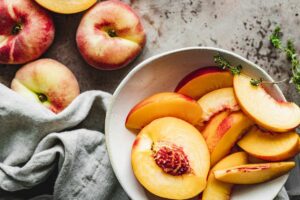
Feeding bearded dragons canned peaches is possible, but it requires special attention due to the potential additives in canned fruit.
Here’s a closer look at why moderation and preparation are key:
- Additives and Preservatives: Canned peaches often come packed in syrup, juice, or water. Syrup typically contains added sugars that aren’t beneficial for bearded dragons and can lead to weight gain or digestive issues. Preservatives found in canned peaches may also disrupt their digestive health. Rinsing canned peaches thoroughly with water helps reduce some of these unwanted additives, but fresh peaches are still a healthier choice.
- High Sugar Content: Peaches are naturally sweet, and canned versions may contain even higher sugar levels. While bearded dragons can digest small amounts of fruit, a high-sugar diet can cause obesity, fatty liver disease, or other metabolic disorders in reptiles. Fresh fruits and vegetables with lower sugar levels, such as greens or certain veggies, should make up the majority of their diet, while fruits should be more of an occasional treat.
- Fresh Peaches vs. Canned Peaches: Fresh peaches are generally healthier for bearded dragons because they lack added preservatives and are higher in natural nutrients. Even then, fresh peaches should only be given occasionally due to their sugar content.
- Nutritional Benefits and Risks: Peaches provide vitamins A and C, which can support immune function and skin health. However, bearded dragons get these nutrients from their staple greens and veggies, so relying on fruit for these vitamins isn’t necessary. Excessive fruit in their diet can imbalance their calcium-to-phosphorus ratio, which is crucial for bone health. Too much phosphorus can prevent calcium absorption, leading to issues like metabolic bone disease.
- Preparation and Portioning: If you decide to feed your bearded dragon canned peaches, choose a variety with no added sugars or preservatives, ideally packed in water rather than syrup. Rinse the fruit well and chop it into small, manageable pieces for your dragon. A small amount, once a week or less, should be fine.
Canned peaches can be fed to bearded dragons in moderation, but fresh, washed, and prepared peaches are a safer and more nutritious option.
Can Bearded Dragons Eat Peaches Everyday
No, bearded dragons shouldn’t eat peaches every day. While peaches are a safe occasional treat, daily feeding can lead to health issues.
Here’s why moderation is important:
- High Sugar Content: Peaches are naturally sweet, and daily servings can lead to obesity and fatty liver disease. Bearded dragons thrive on a diet rich in leafy greens and low in sugars, so fruit should only be a small part of their diet.
- Calcium-to-Phosphorus Ratio: Peaches contain more phosphorus than calcium, which can disrupt calcium absorption. For bearded dragons, a balanced calcium-to-phosphorus ratio is essential to prevent metabolic bone disease, a common condition caused by poor calcium levels.
- Digestive Health: Fruits, especially sugary ones, can cause digestive upset in bearded dragons if given too frequently. Their digestive systems aren’t adapted to high sugar intake, and daily consumption could lead to issues like diarrhea.
- Nutritional Balance: Bearded dragons need a diet mainly composed of leafy greens, vegetables, and insects, with only small portions of fruit occasionally. Peaches can be included once a week or less, ensuring they get essential nutrients without risking imbalances.
Best Practice: Limit peach servings to about once a week, cutting them into small, easy-to-eat pieces. Prioritize leafy greens and vegetables as daily staples for a well-balanced, healthy diet.
What Fruit Can Bearded Dragons Not Eat
Bearded dragons cannot eat certain fruits due to their potential toxicity, high acidity, or negative effects on health. Here are some fruits to avoid:
- Citrus Fruits (Oranges, Lemons, Grapefruits): High in acidity, citrus fruits can cause stomach upset and irritation in bearded dragons.
- Avocado: Toxic to bearded dragons, avocados contain persin, which can cause serious illness or even be fatal.
- Rhubarb: Known for high oxalate levels, rhubarb can disrupt calcium absorption, potentially leading to metabolic bone disease.
- Tomatoes: Although not strictly toxic, tomatoes are acidic and high in oxalates, which may affect calcium absorption when consumed regularly.
- Starfruit: This fruit is also high in oxalates, which can negatively impact calcium levels and lead to health issues over time.
- Fruit Seeds and Pits: Seeds and pits (e.g., from apples, cherries, and peaches) can contain cyanogenic compounds and pose a choking hazard. Always remove them before feeding any fruit.
While many fruits can be offered occasionally, these varieties are best avoided to keep your bearded dragon safe and healthy.
What Is Beardies’ Favorite Fruit
Bearded dragons enjoy a variety of fruits as occasional treats, and while each dragon has unique preferences, several fruits tend to be favorites.
Here are some that bearded dragons commonly love and can safely enjoy in moderation:
- Mango: Mango’s natural sweetness and soft texture make it a popular choice. It’s easy for bearded dragons to eat, and it contains vitamins A and C for immune support. Be sure to remove the skin and cut it into small pieces to avoid any choking hazards.
- Blueberries: Small, bite-sized, and convenient, blueberries are packed with antioxidants and are a favorite among many dragons. These can be offered whole or halved for easier consumption. However, as they’re high in sugar, they should be given sparingly.
- Strawberries: Bright, juicy, and flavorful, strawberries are rich in vitamin C and fiber, which support digestion. Be sure to remove the green tops and slice them into small pieces to make them safe for your dragon.
- Papaya: This tropical fruit has a soft texture and unique taste that many bearded dragons enjoy. It’s also rich in vitamins A and C, supporting skin health and immunity. Papaya offers variety, though it’s still best to offer it occasionally due to its sugar content.
- Apples: Many dragons enjoy the crunch of apples. The texture adds diversity to their diet, though you should remove seeds and the core, as apple seeds can be toxic. Thin slices or small chunks are ideal for safety.
These fruits should be limited to once a week or less because of their sugar levels, which can lead to weight gain or health issues if overfed. To maintain a balanced diet, focus on leafy greens, vegetables, and insects as primary food sources, with fruits as a treat.
What Food Is Poisonous to Bearded Dragons
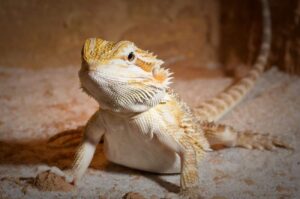
Certain foods are toxic or harmful to bearded dragons and should be completely avoided. Here’s a list of foods that can be poisonous or detrimental to their health:
- Avocado: Avocados contain a substance called persin, which is toxic to many animals, including bearded dragons. Even small amounts can cause serious health issues, so it’s best to avoid this fruit entirely.
- Citrus Fruits: Citrus fruits like oranges, lemons, and grapefruits are highly acidic and can cause stomach upset and irritation in bearded dragons. While not necessarily toxic, their acidity can lead to digestive problems.
- Rhubarb: This plant is high in oxalates, which can interfere with calcium absorption and lead to metabolic bone disease. Rhubarb should be strictly avoided in a bearded dragon’s diet.
- Tomatoes: Although not highly toxic, tomatoes are acidic and can cause digestive upset. They also contain solanine, which can be harmful in large quantities, so it’s best to limit or avoid them.
- Potatoes: Raw potatoes are also toxic due to their solanine content. Cooked potatoes can be difficult for bearded dragons to digest, so it’s better to avoid them altogether.
- Onions and Garlic: Both onions and garlic are harmful and can cause gastrointestinal upset and other health issues. They are not suitable for bearded dragons.
- Fruit Seeds and Pits: Seeds and pits from fruits like apples, cherries, and peaches can contain cyanogenic compounds and pose choking hazards. Always remove these before offering any fruit.
- Iceberg Lettuce: While not toxic, iceberg lettuce has minimal nutritional value and can cause diarrhea. It’s better to choose more nutrient-rich greens.
Always research and ensure that any food you offer your bearded dragon is safe and appropriate for their diet. Maintaining a balanced diet with safe foods helps promote their overall health and well-being.
Can a Bearded Dragon Eat Papaya
Yes, bearded dragons can eat papaya, and many enjoy this tropical fruit. Papaya is a good source of vitamins A and C, which support immune health and skin integrity. Here are some important considerations when feeding papaya to your bearded dragon:
- Moderation: Papaya should be offered as an occasional treat rather than a regular part of their diet. Although it contains beneficial nutrients, it is also relatively high in sugar. Limit servings to once a week or less to avoid potential health issues.
- Preparation: Always wash the papaya thoroughly to remove any pesticides or contaminants. Remove the skin and seeds before offering the fruit, as the seeds can pose a choking hazard and are not safe for consumption. Cut the papaya into small, manageable pieces to make it easier for your bearded dragon to eat.
- Nutritional Benefits: In addition to vitamins A and C, papaya contains digestive enzymes like papain, which can aid digestion. This can be beneficial, especially for dragons that may have difficulty with digestion.
- Balanced Diet: While papaya can be a delightful addition, it should not replace the staple foods in a bearded dragon’s diet. Leafy greens, vegetables, and insects should comprise the majority of their meals, ensuring a well-rounded and balanced diet.
Papaya can be a healthy and tasty treat for bearded dragons when offered in moderation and prepared properly. Just be sure to maintain a balanced diet focused on more nutrient-rich foods.
Is Banana Ok for Bearded Dragons
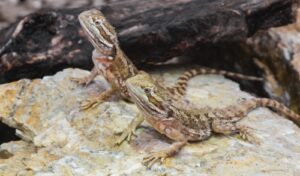
Yes, bearded dragons can eat bananas, but they should be offered in moderation. Here are some important points to consider when feeding bananas to your bearded dragon:
- High Sugar Content: Bananas are relatively high in sugar, which can lead to obesity and other health issues if fed too frequently. It’s best to limit banana servings to once every couple of weeks to prevent excessive sugar intake.
- Nutritional Value: Bananas provide some nutritional benefits, including potassium and vitamin C. However, they do not offer the same level of essential nutrients that leafy greens and other vegetables provide, so bananas should not replace those staples in their diet.
- Preparation: When offering bananas, make sure to peel them and cut them into small, manageable pieces to make it easier for your bearded dragon to eat. The peel is not toxic but can be tough and difficult for them to digest.
- Balanced Diet: Bananas should be considered a treat rather than a regular part of a bearded dragon’s diet. The majority of their meals should consist of leafy greens, vegetables, and protein sources like insects to ensure a well-rounded and healthy diet.
While bananas are safe for bearded dragons in small amounts, it’s essential to offer them sparingly and ensure that they receive a balanced diet focused on more nutritious foods.
What Do Bearded Dragons Love Eating
Bearded dragons enjoy various foods, and their diet should include a mix of vegetables, fruits, and protein sources to ensure they receive the necessary nutrients for optimal health. Here are some foods that bearded dragons typically love:
Vegetables
- Collard Greens: A favorite among bearded dragons, collard greens offer rich calcium and vitamins A and C.
- Mustard Greens: Another nutritious leafy green, mustard greens provide essential vitamins and minerals.
- Kale: Feed kale in moderation due to its oxalate content, but many dragons enjoy it.
- Bell Peppers: Sweet and crunchy, bell peppers make a great source of vitamins and can be offered raw.
- Squash: Both summer and winter squash are loved by bearded dragons and provide good nutrition.
Fruits
- Mango: This tropical fruit is sweet and soft, making it a popular choice among bearded dragons.
- Papaya: Many dragons enjoy the taste of papaya, which is also nutritious and supports digestion.
- Blueberries: Small and easy to eat, blueberries make a delightful treat that many beardies love.
- Strawberries: Juicy and flavorful, strawberries can serve as a treat in moderation.
- Peaches: Soft and sweet, peaches are another fruit that bearded dragons tend to enjoy.
Protein Sources
- Crickets: Live crickets serve as a staple in many bearded dragon diets and provide essential protein.
- Dubia Roaches: These roaches are highly nutritious and easy for bearded dragons to digest.
- Mealworms: Although you should give mealworms in moderation due to their high fat content, many dragons enjoy them.
- Waxworms: Many bearded dragons find waxworms irresistible; they are rich in fat and should be fed sparingly.
- Superworms: Similar to mealworms but larger, superworms act as a popular protein source.
Overall Dietary Balance
A well-balanced diet for a bearded dragon consists primarily of leafy greens and vegetables, with fruits as occasional treats and protein sources as part of their regular meals. Providing a variety of foods ensures they receive all the necessary nutrients for healthy growth and development.
Can Bearded Dragons Eat Chicken
Yes, bearded dragons can eat chicken, but it should be offered in moderation and as part of a balanced diet. Here are some important points to consider when feeding chicken to your bearded dragon:
- Protein Source: Chicken is a good source of protein, which is essential for growth and maintenance in bearded dragons, especially young ones. However, it should not be the primary protein source in their diet.
- Cooked Only: Always feed your bearded dragon cooked chicken. Raw chicken can carry harmful bacteria like Salmonella and should be avoided. Cook the chicken thoroughly without any seasoning, sauces, or spices, as these can be harmful to your pet.
- Portion Size: Offer chicken in small, bite-sized pieces to make it easy for your bearded dragon to eat. A small amount (about the size of their head) is sufficient as an occasional treat.
- Moderation: Chicken should not be a regular part of a bearded dragon’s diet. It can be offered occasionally, about once every few weeks, to provide variety and prevent boredom in their diet.
- Balanced Diet: The majority of a bearded dragon’s diet should consist of leafy greens, vegetables, and appropriate insects for protein. Chicken can supplement their diet, but it should never replace these staple foods.
- Watch for Digestive Issues: When introducing any new food, including chicken, observe your bearded dragon for any signs of digestive upset, such as diarrhea or lack of appetite.
Chicken can be a safe and nutritious treat for bearded dragons when cooked properly and offered in moderation, but it should not replace their primary foods.
Can Bearded Dragons Eat Bread
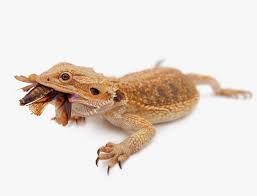
No, bearded dragons should not eat bread. While bread isn’t toxic, it offers no nutritional value and can lead to several health issues. Here are the reasons to avoid bread in a bearded dragon’s diet:
- Low Nutritional Value: Bread mainly contains carbohydrates and lacks essential vitamins, minerals, and protein. Bearded dragons need a balanced diet to thrive, and bread doesn’t provide what they require.
- Digestive Issues: Bread can cause digestive problems. Bearded dragons struggle to break down the complex carbohydrates, which may lead to bloating, constipation, or other gastrointestinal issues.
- Weight Gain: The high carbohydrate content can contribute to weight gain and obesity if fed regularly. This can result in serious health problems, including metabolic disorders.
- Lack of Hydration: Bread does not provide hydration, which is crucial for bearded dragons. They obtain moisture from fresh vegetables and fruits, and bread can reduce their overall water intake.
- Better Alternatives: Instead of bread, focus on offering a variety of leafy greens, vegetables, fruits, and insects. These foods supply essential nutrients and suit a bearded dragon’s dietary needs better.
Avoid feeding bread to bearded dragons and stick to a diet rich in appropriate greens, veggies, and protein sources to ensure their health and well-being.
Can Bearded Dragons Eat Cucumbers
Yes, bearded dragons can eat cucumbers. They provide hydration and some essential nutrients, making them a suitable treat. Here are some important points to consider when feeding cucumbers to your bearded dragon:
- Hydration: Cucumbers contain a high water content, which can help keep your bearded dragon hydrated. This is especially beneficial during hot weather.
- Low Nutritional Value: While cucumbers are safe, they offer minimal nutritional value. They are low in vitamins and minerals compared to other vegetables. Use cucumbers as an occasional treat rather than a staple in their diet.
- Preparation: Wash the cucumber thoroughly to remove any pesticides or contaminants. Slice it into small, manageable pieces for easy consumption. You can also remove the skin if your bearded dragon has trouble digesting it.
- Moderation: Feed cucumbers in moderation, as they should not replace more nutrient-rich vegetables and leafy greens in your bearded dragon’s diet.
- Balanced Diet: Focus on providing a variety of leafy greens, vegetables, and protein sources like insects to ensure a balanced diet for your bearded dragon.
Bearded dragons can enjoy cucumbers as a hydrating treat, but offer them in moderation alongside a well-rounded diet.
Conclusion
Can Bearded Dragons Eat Peaches? Yes, bearded dragons can eat peaches as an occasional treat. This sweet fruit offers hydration and some essential vitamins, making it a delightful addition to their diet.
However, always remove the skin and pit, and serve peaches in moderation to prevent excessive sugar intake. A balanced diet focused on leafy greens and vegetables remains crucial for their overall health.
